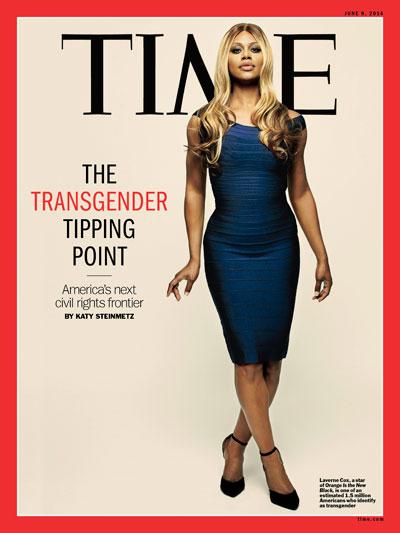By Bob Allen
A college professor and ethicist would like for the Southern Baptist Convention to pass a resolution opposing “transgender identity” — described in a recent Time cover story as “America’s next civil rights frontier” — when the convention meets next week in Baltimore.
 Denny Burk, a professor of biblical studies at Boyce College, undergraduate arm of Southern Baptist Theological Seminary in Louisville, Ky., announced on his blog that he and Andrew Walker, a Ph.D. candidate at Southern Seminary who works as director of policy studies for the SBC Ethics and Religious Liberty Commission, have submitted a statement to the SBC Resolutions Committee opposing efforts to “normalize” the transgender experience.
Denny Burk, a professor of biblical studies at Boyce College, undergraduate arm of Southern Baptist Theological Seminary in Louisville, Ky., announced on his blog that he and Andrew Walker, a Ph.D. candidate at Southern Seminary who works as director of policy studies for the SBC Ethics and Religious Liberty Commission, have submitted a statement to the SBC Resolutions Committee opposing efforts to “normalize” the transgender experience.
“The public consequences of normalizing transgender are upon us,” Burk explained. “School systems across the country are beginning to allow boys who identify as transgender to make use of girls’ restrooms and locker rooms (see here and here). The state of New Jersey has made it illegal for licensed counselors to help a child embrace a gender identity that matches his sex. Medical professionals recommend sex-change surgeries for some transgender persons, and some parents are pursuing surgeries for minor children who experience conflict between their gender and bodily identity.
“Just last Friday [May 30] Medicare lifted its ban on sex reassignment surgeries. The Employment Non-Discrimination Act (ENDA) has at different times seen majority support in both houses of Congress and would make it illegal for employers to make personnel decisions based on gender identity — a measure that would restrict the religious liberty of Christian employers.”
The proposed resolution, which may or may not be reported out of committee and if it is could be altered before presented for vote on the convention floor, affirms “God’s good design that gender identity should be determined by biological sex and not by one’s self-perception — a perception which is often influenced by fallen human nature in ways contrary to God’s design.”
It condemns “efforts to alter one’s bodily identity (e.g., cross-sex hormone therapy, gender reassignment surgery) to bring it into line with one’s perceived gender identity.” It also opposes “all efforts by any court or state legislature to validate transgender identity as morally praiseworthy” and attempts “by media and entertainment outlets and public schools to mainstream transgender identity in the eyes of our children.”
 On May 29, Laverne Cox, star of “Orange is the New Black,” a Netflix comedy-drama set in a women’s prison, became the first transgender person to land on the cover of Time magazine. A month earlier fans protested Cox’s omission from the publication’s annual list of 100 Most Influential People.
On May 29, Laverne Cox, star of “Orange is the New Black,” a Netflix comedy-drama set in a women’s prison, became the first transgender person to land on the cover of Time magazine. A month earlier fans protested Cox’s omission from the publication’s annual list of 100 Most Influential People.
In a story titled “The Transgender Tipping Point,” Time interviewed Cox about her personal journey as well as her fight for transgender rights.
“Transgender people — those who identify with a gender other than the sex they were ‘assigned at birth,’ to use the preferred phrase among trans activists — are emerging from the margins to fight for an equal place in society,” Time’s Katy Steinmetz said in a press release.
One of the biggest obstacles they face, she said, is living “in a world largely built on a fixed and binary definition of gender.”
“In many places, they are unwelcome in the men’s bathroom and the women’s,” Steinmetz said. “The effect is a constant reminder that they don’t belong.”
Burk said efforts to mainstream the “T” in the LGBT acronym for sexual minorities presents Christians with a missional and pastoral challenge.
“The severing of gender identity from biological sex has implications beyond those who identify as transgender,” Burk said. “The gender revisionists are telling us that it is wrong to raise our little boys to be little boys and our little girls to be little girls. Instead, we are told, gender norms should be treated as fluid and unfixed. To teach otherwise is to trade in oppressive gender roles that have little relevance to the modern world.”
The ERLC, the SBC’s agency for moral, ethical and religious-liberty concerns, recently announced a national conference on homosexuality and the future of marriage, scheduled Oct. 27-29 at the historic Opryland Hotel in Nashville, Tenn. First on the list of topics to be covered is: “How do we effectively minister to those who identify as lesbian, gay, bisexual and transgender?”
“First of all, the Scripture tells us that God created us male and female,” ERLC President Russell Moore said in an audio on the ministry website titled “How do you disciple a repentant transgendered person?”
“These are not amorphous categories,” Moore said. “These are not self-reversible categories. This has to do with how we are created by God. So part of what repentance means is to acknowledge the authority of the Creator.”
“Now what’s going to happen is, some transgender person is going to say ‘I don’t feel like a man’ or ‘I don’t feel like a woman.’ We shouldn’t act as though that is surprising,” he continued. “There are all sorts of aspects of our humanity that we are alienated from. That’s what it means to be sinners. Some people are alienated in more ways from some aspects than other people are.”
Moore said it is important that Christians not view transgendered persons as “freaks.”
“There are a lot of people who do,” he said. “They make jokes about transgendered persons. They act as though this is some really freakish sort of thing. We’re the people who have been called to seek and save that which was lost, and all of us were lost. We don’t see people as freaks.”
Moore said he thinks what it means for a transgender person to repent “is to say ‘I’m a man,’ if that person was born a man, or ‘I’m a woman’ if that person was born a woman.”
“That doesn’t mean that person feels like a man or a woman, and you shouldn’t expect that person to,” he said. “What you should do is say this is what it means to follow Christ. It’s difficult for all of us to follow Christ. That’s why we need church.”
